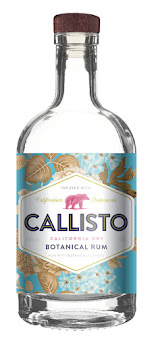Nose (10%): Yeah, that smells like gin. Not like a pine tree, but that citrusy botanical quality is huge. Bergamot, cardamom, and citrus peels. There are no licorice notes, no real pepperiness, and slight white floral notes. 9/10
Palate (20%): Quite dry, albeit the sucrose flavor is there. It's gin but with a few undertones. It reminds me of some gins I've had using honey as a base or apples. It doesn't have the pepperiness of most gins, but as a "botanical gin," this hits the mark. 17/20
Finish (10%): The spice character lingers for quite a while. But it's pretty dang clean. Not nuanced, but lingering and clean 7/10
Overall impression (30%): This is a non-juniper-forward, sugarcane-based gin. This is not a rum on the palate. Rum is sweet, it is dry, it is robust, it is nuanced. There are fruity notes in rum and floral. Rum can taste like cognac or whiskey, but when it tastes like gin, it's so mild that distillate belongs in the flavored spirit category. That's not a bad thing. I genuinely enjoyed this, but it's not a rum. Based on the marketing, I'll be docking points from an otherwise rather high score. 22/30
Retry on Ice (25%): That gets a bit hotter with ice. The spice and the booze hit more, for sure. Certainly a step down. 16/25
Conclusion: The story could be more impressive. A Bermuda gentleman moved to California to have rum be taken seriously. It's not really the ambassador I'd expect, but the product is on point. For use in cocktails, this is a gin or akvavit substitute. I am curious to see how it fits in many classic gin drinks. But you wouldn't put this in a daiquiri and call it a daiquiri. A few tiki cocktails could be given some exciting nuance from this spirit, but they would differ from their standard. That all said, I do like this. It's tasty and well-made. The marketing/labeling could be more straightforward. It's a fantastic talking point bottle, and creative types can easily find inspiration for new cocktail inventions.

No comments:
Post a Comment